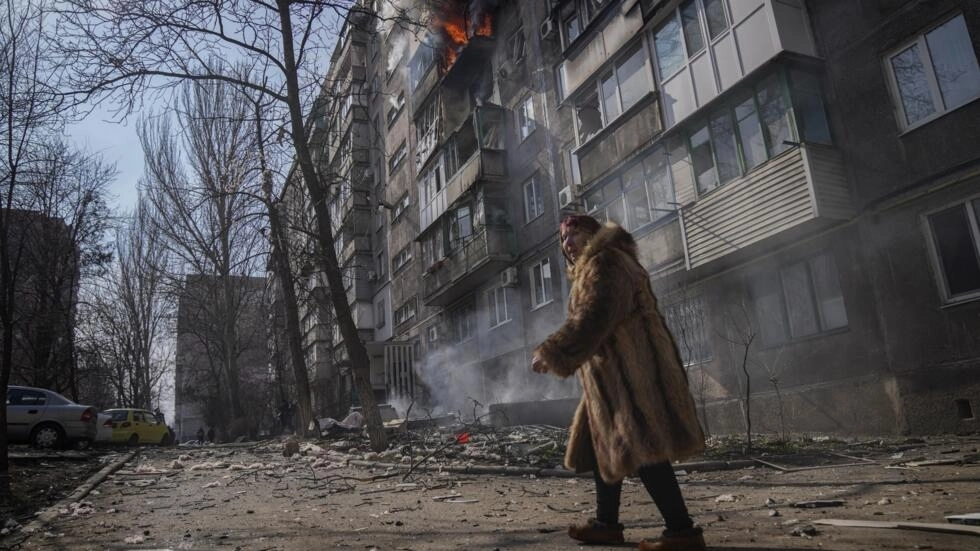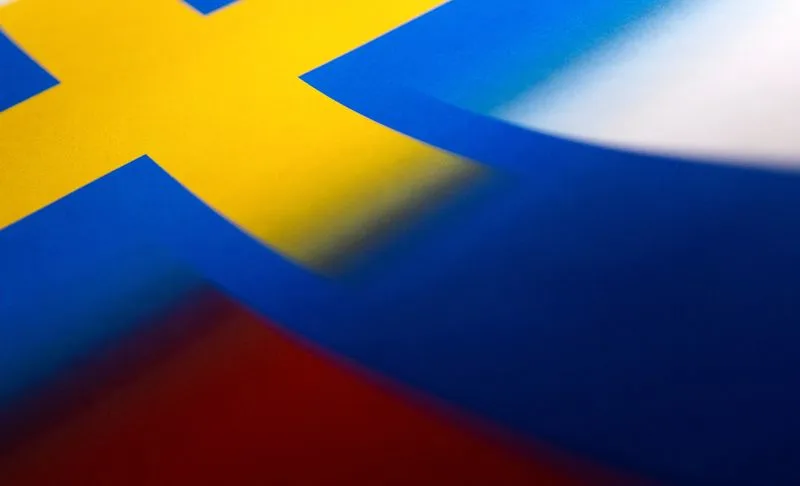(Reuters) – Russia poses a clear military threat in Sweden’s immediate vicinity, but its forces are largely involved in the war in Ukraine, the Swedish Military Intelligence and Security Service (Must) said on Monday.
“The European Security Order, as we know it, no longer exists… and with that the risks to Swedish security have increased as well,” Lena Hallin, head of Must, said at a press conference.
Hallin also said she expects Russia to strengthen its military capabilities in Sweden’s vicinity when possible, in response to Sweden and Finland’s request to join the Western military alliance North Atlantic Treaty Organization (NATO).
According to her, Must judges that Russia wants to avoid an escalation of current tensions into an armed conflict with NATO.
“But there is considerable uncertainty, mainly related to the willingness of the Russian leadership to take great risks,” she said, adding that the high level of tension increases risks that accidents or errors in judgment could lead to conflict.
Putin makes new threats with nuclear arsenal; West accuses Moscow of shaking post-Cold War security


As soon as Russian President Vladimir Putin delivered his address to the nation in Moscow on Tuesday, Western reactions to what many countries perceived as threats to global stability began. Ukraine reinforces its promise to repel the invaders, while NATO regrets Russia’s decision to suspend its participation in the Treaty on the Non-Proliferation of Strategic Arms, an attitude that Washington classified as “irresponsible.”
Calling the announcement “unfortunate and irresponsible,” U.S. Secretary of State Antony Blinken said the United States would always take the necessary measures for its security and that of its allies. Speaking to reporters at the US Embassy in Athens, Blinken reinforced that the US remains open to dialogue. “Of course, we remain ready to discuss with Russia the limitation of strategic weapons at any time,” he said.
“The criticism and the accusation of Western errors as the origin of everything, in addition to the depravity of the West, have been recurrent for more than a year [in Putin’s speech], there is no surprise,” points out Jean-François Bouthors, journalist and author of the book “Poutine, la logique de la force” (“Putin, the Logic of Force”, in liver translation). “It is the continuity of his vision,” he points out in an interview with RFI. What catches the writer’s attention, however, “is the time Putin spent speaking to Russians to affirm the resilience of the nation and to explain what the government could do for them,” Bouthors adds.
The fact that the Russian leader spoke little about Ukraine shows that Putin gave a national cohesion speech. “Even if there is discontent because of lives lost and the economic issues, the Russian nation, as far as we can tell, seems to be sympathetic to its boss, because Russians have been listening to this speech against the enemy since the 1950s,” Bouthors analyzes about the public support for a war that has already lasted a year.
“Deep down, he has nothing glorious to announce,” analyzes the journalist about the fact that Moscow has not had any major victories on the ground. For the expert, Vladimir Putin cannot go back on his plans, which could mean the end of his government. “Today, there are several armed groups coexisting in Russia, which Putin uses to scare the West on the front. But if the war ends, these groups will one day settle accounts inside Russia and we can think about internal conflicts. That is why Putin cannot back down. If he backs down, he’s finished,” he concludes.
New Start
In his speech on Tuesday, the Russian president issued new implied nuclear threats to Western countries that support Ukraine, opening the door to a resumption of Russian nuclear testing if the United States does the same. “No one should harbor dangerous illusions that global strategic parity can be destroyed,” Putin said.
“I am forced to announce today that Russia is suspending its participation in the strategic arms treaty,” President Vladimir Putin added, justifying this decision by the fact that Moscow cannot conduct inspections to verify its implementation by Western countries.
In announcing the suspension of its participation in the strategic arms non-proliferation treaty, Moscow makes it clear that it is not formally withdrawing from the agreement. Even so, the move immediately drew criticism from NATO and Washington.
The New Start (Strategic Arms Reduction Treaty) was signed in 2010. The document limits the number of nuclear warheads that the two former Cold War superpowers can deploy on ballistic missiles, ships, submarines, or bombers to 1,550.
NATO Secretary General Jens Stoltenberg called on Moscow to reconsider the measure. “I regret the decision announced today by Russia to suspend its participation in the New Start Treaty,” he said during a press conference in Brussels. “I urge Russia to reconsider its position,” Stoltenberg added. “More nuclear weapons and less arms control make the world more dangerous,” he said.
The New Start Treaty is the latest such bilateral agreement between the United States and Russia. Moscow had already announced in early August the suspension of planned U.S. inspections of its military facilities under the agreement.
“Russia’s announcement (…) is further proof that the country is just tearing down the security system that was built after the end of the Cold War,” added Josep Borrell, the European Union’s head of diplomacy.
Ukraine Vows to Expel Russians
On the day the Russian president defended his military operation in Ukraine, at least five people were killed in attacks in Kherson, a town in the south of the invaded country. Ukrainian President Volodymyr Zelensky denounced that the Russian army “mercilessly kills civilians” in this city recaptured by Ukrainian forces in November.
Ukraine will “hunt and punish” Russia, reacted Andriy Iermak, chief of staff to the Ukrainian president, on Tuesday following the Russian head of state’s address to the nation. “To summarize, [the Russians] are strategically in a stalemate. Our task is to drive them out of Ukraine and punish them for everything,” Iermak said over Telegram.
(With information from RFI and AFP) *** Translated by the DEFCONPress FYI team ***
